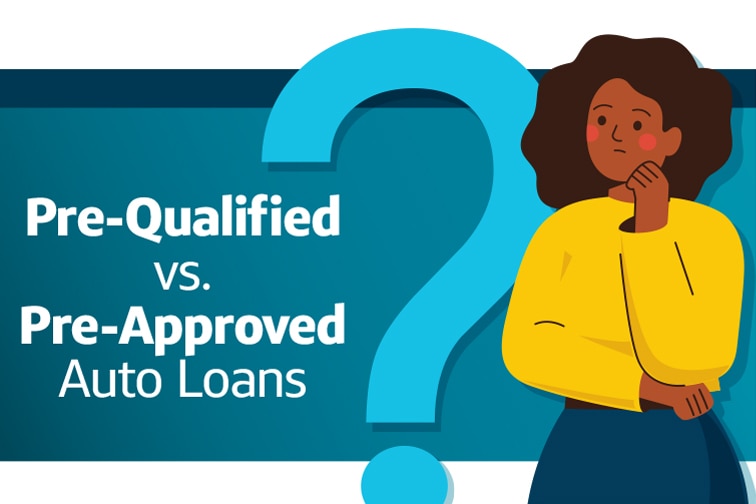Pre-Qualified vs. Pre-Approved Auto Financing
 Getty Images
Getty Images
Article QuickTakes:
Editor’s Note: The terms pre-qualified and pre-approved often appear to be used somewhat interchangeably by different lenders, and there is no industry-agreed standard definition. While this article explores the nuances that can exist between both, such definitions might not reflect how every lender uses each term.
The numerous auto financing offers from different lenders can be confusing—maybe even overwhelming. Especially when they use words like “pre-qualified” and “pre-approved”. Chances are if you’ve already been pre-qualified or pre-approved, you may be thinking: Is there even a difference? Is it impacting my credit score? Understanding these nuances can help you decide which offers are right for you. Then you can head to the dealership and focus on the fun part—browsing and test driving.
WHAT’S THE DIFFERENCE BETWEEN PRE-QUALIFIED AND PRE-APPROVED?
There are two ways for you to get pre-qualified or pre-approved:
- You can receive a pre-approved offer from a lender
- You can proactively apply to get pre-qualified or pre-approved for auto financing
Before you received an offer in the mail, you were probably prescreened... another “pre” word! Prescreening is the behind-the-scenes process by which a lender evaluates a consumer's credit history in order to decide whether or not to send them an auto financing offer.
The term pre-qualification refers to an estimate for financing given by a lender based on information provided by a potential borrower. Pre-approval is a conditional approval given to you from a lender to finance the purchase of a car.
For example, if you're pre-qualified or pre-approved, you may see estimated financing terms, including the financing amount or range, and/or APR.
While these definitions are generalized, it’s important to remember that different lenders will provide different information in their auto financing offers. At Capital One, you could be prescreened in order to receive a pre-approval offer for a range of financing. Capital One also gives you the ability to pre-qualify directly online to see rate and payment options on different vehicles.
DO PRE-QUALIFICATION AND PRE-APPROVAL MEAN I’M APPROVED FOR AUTO FINANCING?
Not quite yet...notice the prefix in front of both words is “Pre”, meaning before or prior to the next step. So before you get approved, a lender checks factors like your credit score and debt-to-income ratio. If you meet the initial criteria required to get auto financing, you’ll still need to submit an actual credit application to get approved for financing. During the application process, the lender is just re-checking those key factors and confirming you still meet the criteria needed to receive financing. If there were no significant changes to your credit since getting pre-qualified or pre-approved, you can feel more confident about getting approved.
DO PRE-QUALIFICATION OR PRE-APPROVAL AFFECT CREDIT SCORES?
When you get prescreened, pre-qualified, or pre-approved for auto financing, it’s typically a "soft inquiry". Soft inquiries, also known as soft credit pulls, don’t affect your credit score even though you can see them on your personal credit report. They don’t indicate great risk because they aren’t tied to a new application for credit. For example: When a potential employer checks your credit report, it’s just a soft inquiry.
However, in order to buy a car, you’ll have to submit a credit application at the dealership. This is when you will get officially approved or declined for auto financing. This credit application will result in a "hard inquiry", meaning it will pull your credit and impact your credit score. Think of all credit inquiries as checking a track record of your financial history to help a lender decide if they want to offer you financing.
HOW DO I USE MY AUTO FINANCING OFFER?
Once you’re pre-qualified or pre-approved, there are multiple ways to make the most of your auto financing offer:
- Do your research and continue to fill out other lenders' forms (but check first to make sure they won't impact your credit score) in order to pre-qualify or get pre-approved for financing. This will help you make sure you're getting the best auto financing offer for you
- Evaluate your auto financing options and the different offers from each lender. Pay close attention to potential monthly payments and APRs with each offer
- Bring your offers into the dealership as you prepare to finesse the financing
FINAL THOUGHTS
There are several factors to consider when preparing for a car purchase, which can feel overwhelming. Knowing the common lingo for car buying and auto financing offerings can help you choose the option that works best for you and your finances.



